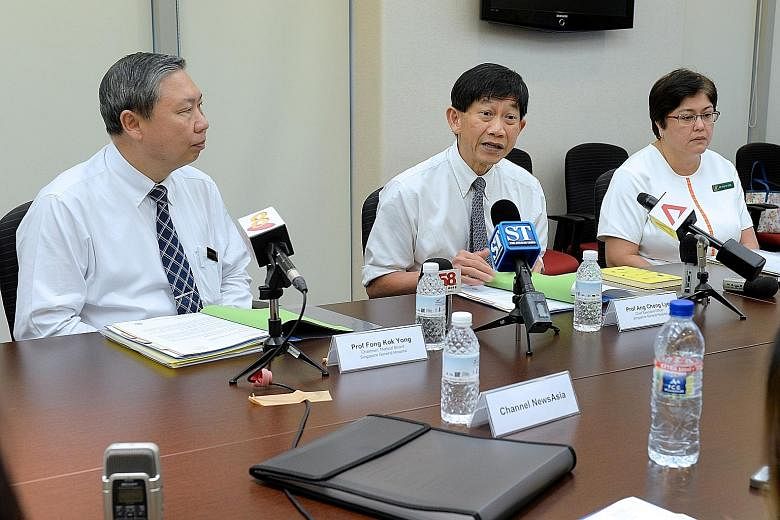Last year, 57 people got a kidney transplant, with 40 getting the organ from a living donor. The transplants came with the hope of many years of good-quality life.
But for 19 transplant patients who spent time at Singapore General Hospital's (SGH) renal ward, this hope took a hit as they were infected with hepatitis C - which could lead to liver diseases.
Of these, nine got their new kidneys only within the past year.
The infected patients were aged 24 to 70, with the majority in their 50s and 60s.
At least five, possibly more, of these 19 transplant patients have died in the past six months, with hepatitis C a possible contributory factor in some of the deaths.
The fact that they had a kidney transplant could have worked against them.
One reason they succumbed so quickly could be because of their compromised immune system.
According to SGH, "nearly half had recent high-dose immunosuppression therapy" to help them overcome their body's rejection of the new organ.
Liver specialist Mark Fernandes of GutCare Clinic said severe hepatitis infection is more likely to strike patients with a weakened immune system.
Known to doctors as "rapidly progressive fibrosing cholestatic hepatitis", it can cause liver failure within a matter of months, he said. Once the liver fails, secondary problems such as bacterial infections or sepsis quickly set in.
"The only way we know to treat this is to reduce the amount of immunosuppressants given to the patient," Dr Fernandes said. "Even then, the outcome is not good."
However, he stressed that this particular form of hepatitis infection is rare, and that hepatitis C usually takes years to inflict severe damage on a person's liver.
"For the average Joe, it could take 20 to 30 years," he said.
Even in a sick person with a weakened immune system, a non-aggressive form of the infection would take at least one or two years to cause serious problems.
According to Professor Fong Kok Yong, chairman of SGH's medical board, the majority of patients whose deaths might be linked to the hepatitis C infection died of sepsis or blood poisoning.
He added that many patients were in hospital for infections, such as pneumonia and infection of the urinary tract.
The hospital has promised to pay for all the treatment these patients need to overcome this infection. Antiviral medicine, which can cure up to 90 per cent of otherwise healthy patients, can be very expensive, with newer drugs costing $90,000.
Professor Ang Chong Lye, SGH's chief executive officer, said all the infected patients have been referred to liver specialists who will work together with their kidney doctors to treat them.

